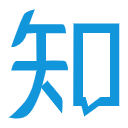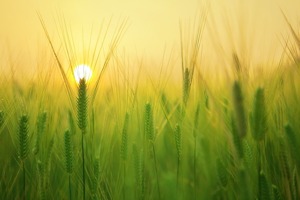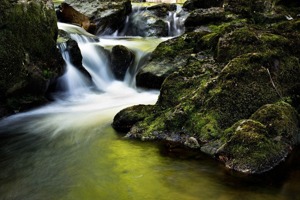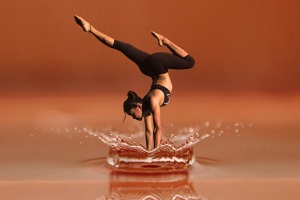六年级下册英语(六年级下册英语完形填空万能公式)
资讯
2023-11-30
336
1. 六年级下册英语,六年级下册英语完形填空万能公式?
完型填空并没有“万能公式”,只能有一些经验性的技巧。比如可以根据空所在的上下文去寻找意思相近或相同的选项。
二是可以根据一些选项的时态进行排除,比如进行时就不能使用过去时,这些选项不看意思直接删除。总之千万不要相信网上所谓的选项规律,现在都是机读卡,所以不存在人工规律的原则。
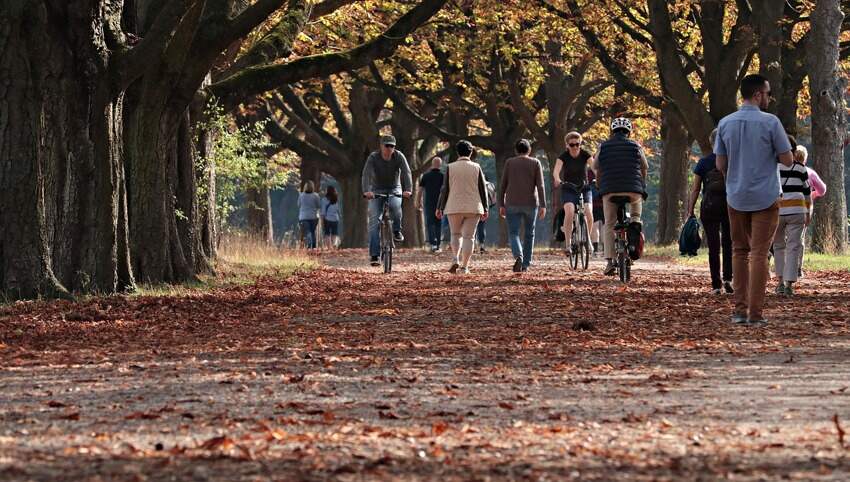
2. 六年级下册英语常考的句型?
1 常见的句型有倒装句、条件句、宾语从句、并列句、复合句等2 因为这些句型在英语语言中使用频率比较高,所以在英语考试中经常会出现3 可以参考课本和历年的英语考试试卷,多读、多写、多记常见的句型,提高对句型的熟练度。
3. 六年级下册的英语单元词汇表的所有单词?
Unit 1tall—taller更高的 short—shorter 更矮的 strong—stronger 更强壮的 old—older 年龄更大的 young—younger 更年轻的 big—bigger 更大的heavy—heavier 更重的 long—longer 更长的 thin—thinner 更瘦的 small—smaller (体型)更小的Unit 2have a fever 发烧 have a sore throat喉咙疼 have a cold感冒 have a toothache 牙疼 have a headache 头疼 matter事情,麻烦 sore 疼的 hurt疼痛 nose 鼻子 tired疲劳的,累的 excited兴奋的 angry生气的 happy高兴的 bored无聊的,烦人的 sad 忧伤的,悲伤的Unit 3watch—watched 看 wash—washed 洗 clean—cleaned打扫 play—played玩 visit—visited 看望 do—did last weekend 上一个周末 go—went去 go to a park—went to a park 去公园 go swimming—went swimming去游泳 go fishing—went fishing去钓鱼 read—read 读 go hiking—went hiking 去郊游Unit 4leran Chinese—learned Chinese学汉语 sing and dance—sang and danced 唱歌和跳舞 eat good food—ate good food吃好吃的食物 take pictures—took pictures 照相 climb—climbed 爬 have—had buy presents—bought presents买礼物 row a boat—rowed a boat 划船 see elephant—saw elephant 看大象 go skiing—went skiing 去滑雪 go ice-skating—went ice-skating 去滑冰 how怎么,如何 get—got 到达 last 上一个的,仅余的,留在最后的
4. 六年级下册英语课本单词表人教版?
PEP六年级上册四会单词词汇表Unit
1:by (经,乘) foot(脚) bike(自行车) bus(公共汽车) train(火车) how(怎样) go to school(上学) traffic(交通) traffic light(交通灯) traffic rule(交通规则) stop(停,停车站)wait(等待) get to(到达)Unit
2:library(图书馆) post office(邮局) hospital(医院) cinema(电影院) bookstore(书店) where(在哪里,到哪里) please(请) next to(与…相邻) turn(转弯) right (右边) left(左边) straight(成直线地) then(然后)Unit
3:next week(下周) this morning(今天上午) this afternoon(今天下午) this evening (今天晚上) comic book(漫画书) post card(明信片) newspaper(报纸) buy(购买)Unit
4: hobby(爱好) ride a bike--riding a bike(骑自行车) dive--diving(跳水) play the violin―playing the violin(拉小提琴) make kites―making kites(制作风筝) collect stamps―collecting stamps(集邮) live �Clives(居住) teach--teaches(教) go--goes(去) watch--watches(看) read--reads(读,看) does doesn’t=does notUnit
5:singer(歌唱家,歌手) writer(作家) actor(男演员) actress(女演员) artist(画家) TV reporter(电视台记者) engineer(工程师) accountant(会计) policeman(男警察) salesperson(销售员) cleaner(清洁工) where(在哪里,到哪里) work(工作)Unit
6:rain(雨) cloud (云) sun(太阳) stream(河,溪) come from(来自,从…来) seed(种子) soil(土壤) sprout (苗,芽) plant(植物,种植) should (应该) then(然后)PEP六年级下册四会单词词汇表Unit 1:tall―taller更高的 short―shorter 更矮的 strong―stronger更强壮的 old―older 年龄更大的 young―younger 更年轻的 big―bigger更大的heavy―heavier 更重的 long―longer 更长的 thin―thinner 更瘦的 small―smaller (体型)更小的Unit 2:have a fever 发烧 have a sore throat喉咙疼 have a cold感冒 have a toothache 牙疼 have a headache 头疼 matter事情,麻烦 sore 疼的 hurt疼痛 nose 鼻子 tired疲劳的,累的 excited兴奋的 angry生气的 happy高兴的 bored无聊的,烦人的 sad 忧伤的,悲伤的Unit 3:watch―watched 看 wash―washed 洗 clean―cleaned打扫 play―played玩 visit―visited 看望 do―did last weekend上一个周末 go―went去 go to a park―went to a park 去公园 goswimming―went swimming去游泳 go fishing―went fishing去钓鱼 read―read 读 go hiking―went hiking 去郊游Unit 4:leran Chinese―learned Chinese学汉语 sing and dance―sang and danced 唱歌和跳舞 eat good food―ate good food吃好吃的食物take pictures―took pictures 照相 climb―climbed 爬 have―had buy presents―bought presents买礼物 row aboat―rowed a boat 划船 see elephant―saw elephant 看大象 go skiing―went skiing 去滑雪 go ice-skating―wentice-skating 去滑冰 how怎么,如何 get―got 到达 last上一个的,仅余的,留在最后的
5. 关于国家的英语介绍六年级下册?
Beijing is the capitai of China.
It is north of shanghai .
You can find museums,pleaces and packs there.
Many tourists like visiting those places.
They always visit the Great wall.
There are more than 15 million people in Bei jing .
They enjoy eating dumping sushi.
6. 六年级下册英语书有多长?
英语课本都是长25.8厘米,宽18.4厘米。
它们都是16K纸。跟一张A4纸对比一下,比A4纸要小。
除英语数学之外,还有生物、化学、物理、地理、历史和思想品德课本都是一样大的,只是厚度不同,语文课本比它们要小一点。出版社不同,书的尺寸也有所不同的。
7. 剑桥英语六年级下册知识点?
剑桥英语六年级下册的知识点主要包括以下内容:
1. 语法知识:比较级和最高级形容词、动词时态(一般过去时、现在完成时、将来进行时)、情态动词、条件句(第二类型和第三类型)、被动语态等。
2. 词汇与短语:扩展学习更多的单词和短语,包括日常生活中常见的名词、动词、形容词和副词等。同时,还会涉及到一些专业领域或特定话题相关的术语。
3. 阅读理解:通过阅读文章并回答问题来提高对英文文章的理解能力。理解文章主旨、细节信息以及推断作者意图等方面的技能。
4. 写作技巧:学习如何写作简单的句子、段落和短文,包括描述人物特征、事件经过以及个人观点等方面。
5. 听力技巧:通过听取录音材料来提升听力理解能力,包括听取对话或独白,并根据所听内容回答问题。
这仅是一些典型且常见的知识点,具体教材中可能还有其他相关内容。建议参考具体的教材和课程大纲以获取更详细的信息。
本站涵盖的内容、图片、视频等数据系网络收集,部分未能与原作者取得联系。若涉及版权问题,请联系我们删除!联系邮箱:ynstorm@foxmail.com 谢谢支持!
1. 六年级下册英语,六年级下册英语完形填空万能公式?
完型填空并没有“万能公式”,只能有一些经验性的技巧。比如可以根据空所在的上下文去寻找意思相近或相同的选项。
二是可以根据一些选项的时态进行排除,比如进行时就不能使用过去时,这些选项不看意思直接删除。总之千万不要相信网上所谓的选项规律,现在都是机读卡,所以不存在人工规律的原则。

2. 六年级下册英语常考的句型?
1 常见的句型有倒装句、条件句、宾语从句、并列句、复合句等2 因为这些句型在英语语言中使用频率比较高,所以在英语考试中经常会出现3 可以参考课本和历年的英语考试试卷,多读、多写、多记常见的句型,提高对句型的熟练度。
3. 六年级下册的英语单元词汇表的所有单词?
Unit 1tall—taller更高的 short—shorter 更矮的 strong—stronger 更强壮的 old—older 年龄更大的 young—younger 更年轻的 big—bigger 更大的heavy—heavier 更重的 long—longer 更长的 thin—thinner 更瘦的 small—smaller (体型)更小的Unit 2have a fever 发烧 have a sore throat喉咙疼 have a cold感冒 have a toothache 牙疼 have a headache 头疼 matter事情,麻烦 sore 疼的 hurt疼痛 nose 鼻子 tired疲劳的,累的 excited兴奋的 angry生气的 happy高兴的 bored无聊的,烦人的 sad 忧伤的,悲伤的Unit 3watch—watched 看 wash—washed 洗 clean—cleaned打扫 play—played玩 visit—visited 看望 do—did last weekend 上一个周末 go—went去 go to a park—went to a park 去公园 go swimming—went swimming去游泳 go fishing—went fishing去钓鱼 read—read 读 go hiking—went hiking 去郊游Unit 4leran Chinese—learned Chinese学汉语 sing and dance—sang and danced 唱歌和跳舞 eat good food—ate good food吃好吃的食物 take pictures—took pictures 照相 climb—climbed 爬 have—had buy presents—bought presents买礼物 row a boat—rowed a boat 划船 see elephant—saw elephant 看大象 go skiing—went skiing 去滑雪 go ice-skating—went ice-skating 去滑冰 how怎么,如何 get—got 到达 last 上一个的,仅余的,留在最后的
4. 六年级下册英语课本单词表人教版?
PEP六年级上册四会单词词汇表Unit
1:by (经,乘) foot(脚) bike(自行车) bus(公共汽车) train(火车) how(怎样) go to school(上学) traffic(交通) traffic light(交通灯) traffic rule(交通规则) stop(停,停车站)wait(等待) get to(到达)Unit
2:library(图书馆) post office(邮局) hospital(医院) cinema(电影院) bookstore(书店) where(在哪里,到哪里) please(请) next to(与…相邻) turn(转弯) right (右边) left(左边) straight(成直线地) then(然后)Unit
3:next week(下周) this morning(今天上午) this afternoon(今天下午) this evening (今天晚上) comic book(漫画书) post card(明信片) newspaper(报纸) buy(购买)Unit
4: hobby(爱好) ride a bike--riding a bike(骑自行车) dive--diving(跳水) play the violin―playing the violin(拉小提琴) make kites―making kites(制作风筝) collect stamps―collecting stamps(集邮) live �Clives(居住) teach--teaches(教) go--goes(去) watch--watches(看) read--reads(读,看) does doesn’t=does notUnit
5:singer(歌唱家,歌手) writer(作家) actor(男演员) actress(女演员) artist(画家) TV reporter(电视台记者) engineer(工程师) accountant(会计) policeman(男警察) salesperson(销售员) cleaner(清洁工) where(在哪里,到哪里) work(工作)Unit
6:rain(雨) cloud (云) sun(太阳) stream(河,溪) come from(来自,从…来) seed(种子) soil(土壤) sprout (苗,芽) plant(植物,种植) should (应该) then(然后)PEP六年级下册四会单词词汇表Unit 1:tall―taller更高的 short―shorter 更矮的 strong―stronger更强壮的 old―older 年龄更大的 young―younger 更年轻的 big―bigger更大的heavy―heavier 更重的 long―longer 更长的 thin―thinner 更瘦的 small―smaller (体型)更小的Unit 2:have a fever 发烧 have a sore throat喉咙疼 have a cold感冒 have a toothache 牙疼 have a headache 头疼 matter事情,麻烦 sore 疼的 hurt疼痛 nose 鼻子 tired疲劳的,累的 excited兴奋的 angry生气的 happy高兴的 bored无聊的,烦人的 sad 忧伤的,悲伤的Unit 3:watch―watched 看 wash―washed 洗 clean―cleaned打扫 play―played玩 visit―visited 看望 do―did last weekend上一个周末 go―went去 go to a park―went to a park 去公园 goswimming―went swimming去游泳 go fishing―went fishing去钓鱼 read―read 读 go hiking―went hiking 去郊游Unit 4:leran Chinese―learned Chinese学汉语 sing and dance―sang and danced 唱歌和跳舞 eat good food―ate good food吃好吃的食物take pictures―took pictures 照相 climb―climbed 爬 have―had buy presents―bought presents买礼物 row aboat―rowed a boat 划船 see elephant―saw elephant 看大象 go skiing―went skiing 去滑雪 go ice-skating―wentice-skating 去滑冰 how怎么,如何 get―got 到达 last上一个的,仅余的,留在最后的
5. 关于国家的英语介绍六年级下册?
Beijing is the capitai of China.
It is north of shanghai .
You can find museums,pleaces and packs there.
Many tourists like visiting those places.
They always visit the Great wall.
There are more than 15 million people in Bei jing .
They enjoy eating dumping sushi.
6. 六年级下册英语书有多长?
英语课本都是长25.8厘米,宽18.4厘米。
它们都是16K纸。跟一张A4纸对比一下,比A4纸要小。
除英语数学之外,还有生物、化学、物理、地理、历史和思想品德课本都是一样大的,只是厚度不同,语文课本比它们要小一点。出版社不同,书的尺寸也有所不同的。
7. 剑桥英语六年级下册知识点?
剑桥英语六年级下册的知识点主要包括以下内容:
1. 语法知识:比较级和最高级形容词、动词时态(一般过去时、现在完成时、将来进行时)、情态动词、条件句(第二类型和第三类型)、被动语态等。
2. 词汇与短语:扩展学习更多的单词和短语,包括日常生活中常见的名词、动词、形容词和副词等。同时,还会涉及到一些专业领域或特定话题相关的术语。
3. 阅读理解:通过阅读文章并回答问题来提高对英文文章的理解能力。理解文章主旨、细节信息以及推断作者意图等方面的技能。
4. 写作技巧:学习如何写作简单的句子、段落和短文,包括描述人物特征、事件经过以及个人观点等方面。
5. 听力技巧:通过听取录音材料来提升听力理解能力,包括听取对话或独白,并根据所听内容回答问题。
这仅是一些典型且常见的知识点,具体教材中可能还有其他相关内容。建议参考具体的教材和课程大纲以获取更详细的信息。
本站涵盖的内容、图片、视频等数据系网络收集,部分未能与原作者取得联系。若涉及版权问题,请联系我们删除!联系邮箱:ynstorm@foxmail.com 谢谢支持!
